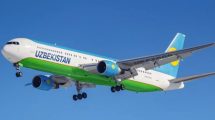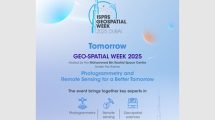
Eight spaceports in six countries signed an MoU to share lessons learned and potentially develop standards for launch facilities around the world. The signing took place on the sidelines of the International Astronautical Congress held in Milan recently. The agreement outlines plans for the launch facilities to work together to address issues in the development and operation of their facilities.
“This partnership demonstrates our collective commitment to underscore the importance of spaceports, supporting their future, and enabling a new era of innovation, security and economic growth in the space industry,” said Roosevelt “Ted” Mercer, head of the Virginia Spaceport Authority, which operates the Mid-Atlantic Regional Spaceport (MARS) on Wallops Island, Virginia, in a statement.
The announcement did not disclose specific issues that the group will tackle, although it noted they will discuss “establishing international spaceport standards.” The initial group of eight spaceports will meet to determine key topics for collaboration.
The spaceports range from established to proposed facilities. MARS, for example, hosts launches by companies like Northrop Grumman and Rocket Lab, while the other U.S. spaceport to join, Pacific Spaceport Complex-Alaska, has served small launch vehicle companies such as ABL Space Systems and Astra. Sweden’s Esrange Space Center has been a launch site for suborbital sounding rockets for decades and is preparing to host orbital launches.
Two spaceports in the United Kingdom that signed the agreement, SaxaVord Spaceport Sutherland Spaceport, are developing facilities with plans to host orbital launches as soon as 2025. The other three spaceports — Hokkaido Spaceport in Japan, Space Centre Australia and Stargate Peru — are still in early stages of development.
“By working together to establish standardised practices, we can enhance the resilience and responsiveness of launch systems,” said James Palmer, chief executive of Space Centre Australia, in a statement.
The MOU signing took place at the end of a closed-door meeting held at IAC hosted by the Federal Aviation Administration and the Global Spaceport Alliance (GSA), an organisation of existing and proposed spaceports.














Add Comment